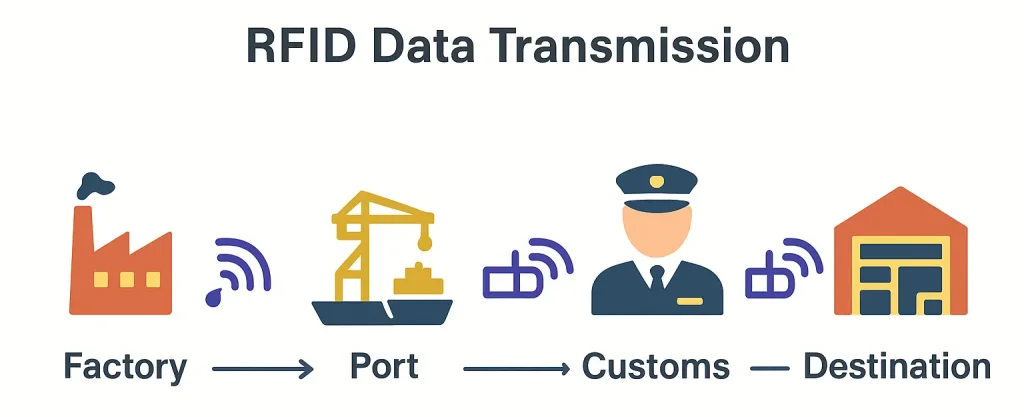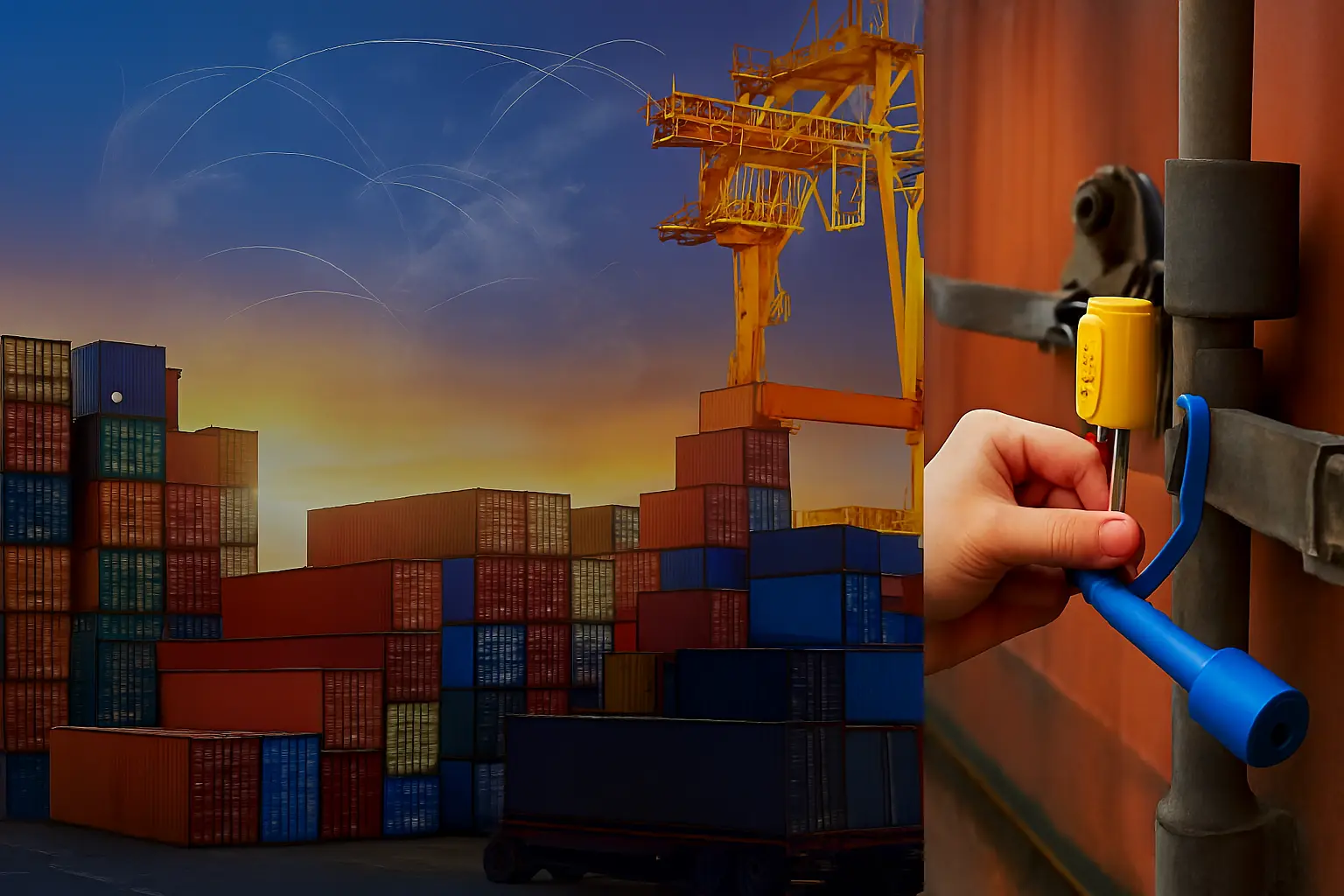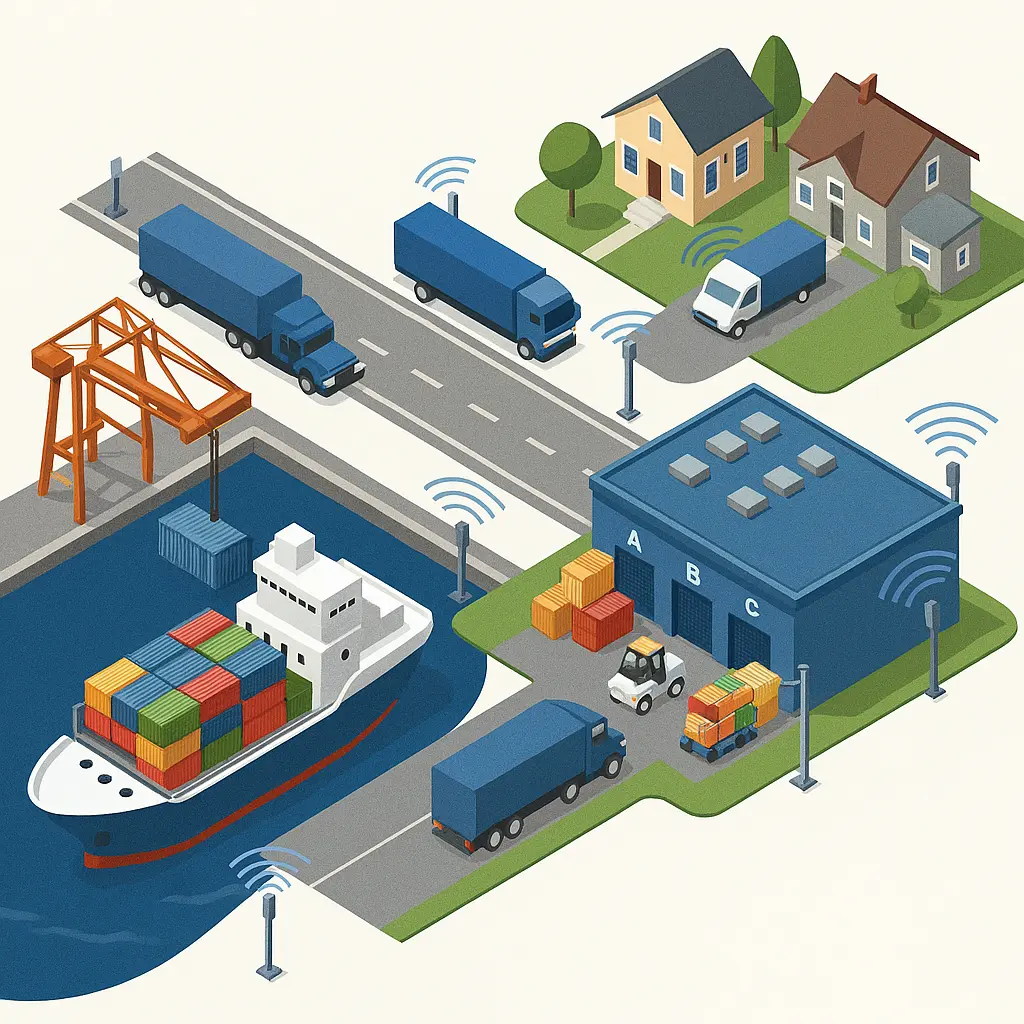Global trade runs on trust, and that trust often hinges on a small but mighty component: the shipping container security seal. Every day, millions of containers move across borders, oceans, and ports. Without reliable container security seals, cargo can be tampered with, stolen, or delayed, costing businesses time, money, and reputation.
Modern solutions like RFID trailer seals and high-security bolt seals are now transforming how companies protect their goods, ensuring safer, compliant, and traceable logistics worldwide.
What Are Shipping Container Security Seals and Why Are They Important?
A container security seal is a tamper-evident lock placed on a shipping container, truck, or trailer. Once closed, it can only be opened by cutting or breaking, making any unauthorized access immediately visible.
These security seals for containers are essential for international trade. They prevent theft, smuggling, and contamination, and act as proof that your cargo wasn’t opened in transit. Customs officials also rely on them to verify integrity and speed up clearance.
For instance, if a container lock seal arrives intact, it’s usually cleared without extra inspection. If it’s broken, that shipment is flagged for review. In short, container seals don’t just protect goods; they protect your credibility.
Types of Container Seals Used in Global Trade
Different cargo types need different seals. Here’s a quick comparison:
| Seal Type | Best Use Case | Tamper Level | Notes |
| Bolt Seals | Ocean containers, trailers | High | ISO 17712-certified, C-TPAT approved |
| Cable Seals | Tankers, trucks, railcars | High | Requires a cable cutter to open |
| Plastic Seals | Bags, boxes, light cargo | Medium | Cost-effective, for low-risk goods |
| Barrier Seals | Heavy-duty cargo, customs | Very High | Locks both container doors together |
| RFID Trailer Seals | High-value or monitored cargo | Very High | Enables tracking & data logging |
Bolt seals for shipping containers are the most common, strong, easy to apply, and recognized worldwide for compliance. Cable and barrier seals offer higher protection for bulk or high-value shipments, while RFID trailer seals combine physical strength with smart tracking for complete visibility.
Learn more about these options on Klik eSeal’s High Security Container Seals for Middle East & Global Trade page.
How Container Seals Protect Supply Chains Across Industries
Every industry that ships or stores goods benefits from secure sealing. Let’s look at a few real-world examples:
- Oil & Gas: Fuel tankers and offshore cargo use metal bolt seals to prevent pilferage and ensure compliance with international safety laws.
- Pharmaceuticals: Tamper-proof protection seals guarantee that medicines remain untouched from manufacturer to distributor.
- FMCG: Fast-moving goods rely on seals to prevent unauthorized handling and contamination.
- Banking & Cash Transit: Containers and boxes carrying currency use serialized seals to ensure every opening is accounted for.
- Logistics & Fleet Operators: RFID-enabled seals help monitor shipments across borders in real-time.
Whether it’s a truck crossing Saudi Arabia or a ship sailing from India to the UK, container security seals build a chain of custody that keeps assets and compliance intact.
The Role of C-TPAT and ISO Standards in Seal Compliance
For global shippers, compliance is non-negotiable. Two standards dominate the world of container lock seals:
- ISO 17712: Defines strength and tamper-resistance levels for metal seals. Only “H” (high security) seals are recognized for international shipping.
- Customs-Trade Partnership Against Terrorism: A U.S. Customs program that requires all inbound containers to use C-TPAT high security seals.
Klik eSeal’s range of bolt seals for shipping containers fully meets these standards, ensuring every seal you use passes global customs without delay.
For more background, you can also check Wikipedia’s page on security seals.
How RFID Technology Is Transforming Container Security
Technology has made even traditional seals smarter. RFID trailer seals use embedded chips to record, transmit, and verify seal data automatically.
Here’s how it works:
- The container is sealed with an RFID-enabled bolt or cable seal.
- Each checkpoint, port, warehouse, and customs gate scans the RFID tag.
- The system logs the time, location, and seal status (locked, open, or tampered).
This creates a digital trail that’s nearly impossible to forge. Fleet managers can track container movements in real-time, reducing theft and paperwork errors.

Klik eSeal’s Our Products include smart RFID seals that simplify this entire tracking process.
How to Choose the Right Seal for Your Shipping Container
Selecting the best shipping container security seals depends on your cargo type, risk level, and compliance needs.
Here’s a quick decision guide:
- For ocean shipping: Choose ISO 17712 “H” certified bolt seals; they’re mandatory for most international routes.
- For trucking or short-distance transit: Go for cable seals that can handle vibration and weather exposure.
- For low-value goods or internal storage: Use numbered plastic seals for basic tamper evidence.
- For high-value cargo: Invest in RFID trailer seals to enable remote tracking and instant alerts.
- For regulatory compliance: Always verify C-TPAT or ISO certification from trusted container seals suppliers like Klik eSeal.
“Pro Tip: Spending a little more on a compliant seal can save you thousands in customs delays and lost cargo.”
Global Trade and Container Security – Why It Matters for Every Market
Every region faces unique logistics challenges, but all depend on container integrity.
- UAE & Saudi Arabia: Heavy focus on oil and gas exports. ISO-certified seals are mandatory for cross-border movement.
- Qatar & Kuwait: FMCG and industrial imports rely on tamper-proof container seals for customs verification.
- United Kingdom & Europe: Compliance with AEO (Authorized Economic Operator) programs requires ISO 17712 seals.
- United States: Strict C-TPAT guidelines mean all inbound containers must have certified high-security seals.
- India & Southeast Asia: Rapidly growing ports and trade zones are adopting RFID sealing for faster digital tracking.
Klik eSeal supports all these markets with fast, compliant delivery of shipping container security seals and RFID trailer seals to ensure smooth global trade.
Klik eSeal – Your Trusted Partner for Container Security Solutions
Klik eSeal isn’t just a container seal supplier; it’s a global security solutions partner.
With years of experience serving industries across the Middle East, Europe, and Asia, Klik eSeal offers a complete line of protection seals, from heavy-duty bolt seals for shipping containers to advanced RFID trailer seals that enable real-time cargo tracking.
All Klik eSeal products comply with C-TPAT and ISO 17712 standards, making them trusted by logistics, customs, and compliance professionals worldwide.
Explore the full product range on Klik eSeal or browse Our Products for more details.
Conclusion
Container seals may be small, but they’re the silent guardians of the global supply chain. From ports and warehouses to highways and border crossings, these simple devices ensure every shipment stays safe, compliant, and traceable.
If you’re looking to secure shipping containers and protect your brand reputation, choose certified, high-quality seals from Klik eSeal.
Frequently Asked Questions
A shipping container security seal prevents unauthorized access during transit. It ensures compliance with C-TPAT and ISO standards while protecting goods across borders.
Bolt seals for shipping containers are the preferred option. They’re ISO 17712 and C-TPAT approved, offering maximum protection for sea and cross-border transport.
Absolutely. Klik eSeal supplies container security seals and RFID trailer seals across the Middle East, Europe, the USA, and Asia with reliable global logistics.
Klik eSeal combines innovation with compliance, offering tamper-evident, RFID-enabled, and ISO-certified seals trusted by logistics companies and customs worldwide.


